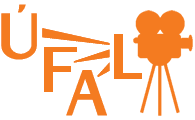Cognitive insights into analysis of translationese combining product and process data
Speaker:
Ekaterina Lapshinova-Koltunski (Universität Hildesheim)
Abstract:
In this talk, I will focus on `translationese’, i.e. the specific linguistic properties of translation that distinguish translation from non-translated language production. While these phenomena have been extensively analysed in both human and machine translation oriented studies, the driving forces behind such translationese effects as simplification and explicitation remain under-researched.
In the search for the explanation of the existing descriptive findings on translationese on rational communication grounds, we combine corpus-based with experimental methods. On the one hand, we use such measures as surprisal and entropy to assess translationese effects from translation products and interpret them from an information-theoretic perspective. On the other hand, we use eye-tracking data for the analysis of translation process. The linguistic phenomena under analysis will include discourse connectives and (compound) nouns.
Length:
01:21:16
Date:
07/10/2024


